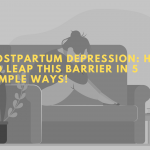What does your normal day look like? You wake up at 6 in the morning, shower, grab the breakfast, plug in some music as you make your way to the office. Then get back home, make yourself dinner, catch up on the latest episodes on Netflix and then unwind for the day. That’s what the regular day of regular people looks like and most of us don’t give much thought to it. But from the perspective of someone suffering from Schizophrenia, this might as well be the definition of luxury. Schizophrenia is a psychological condition that stems from the inefficiency of various centers of the brain and manifests as a scary illness. Often those who give care to the patients of this illness wonder whether, they will ever get better, will the care help them get a normal life, are the patients dangerous to themselves or others, or How to deal with Schizophrenia?
We understand if your loved one is going through this illness, oftentimes things get difficult, the mounting pressure, the insecurity, the fear, and stigma surrounding this illness – it is nerve-wracking. Families who have a member suffering this illness are often seen going through a lot of stress, emotionally and financially. If you have ever Googled ‘How to deal with Schizophrenia?’, this post can help you gain a perspective and get a better understanding of the illness.
Schizophrenia is a severe and impairing illness of the mind that affects about 1% of the global population (as of research in 2015) and the real impact of the condition is very poorly understood by the public. The fact that a larger portion of Schizophrenia patients ends their lives by suicide and the remaining portion is highly vulnerable to physical trauma; bringing down the lifespan down by10-20 years than the global average.
Schizophrenia is of many types but mainly five types are noted by the mental healthcare officials, it can affect ages from adolescence to the late sixties. In children, Schizophrenia is rarely noted. NIMMH estimates that about 1 in 40,000 children will develop the condition of Schizophrenia before age 13.
What are the symptoms of Schizophrenia?
Modern psychology characterizes the symptoms of Schizophrenia as Positive and Negative. Positive symptoms are like Hallucinations, Delusions, these represent the new patterns of thinking of the patients. Negative symptoms like Withdrawal represent the detachment of the patient from the healthy routines that they used to follow and/or they do it poorly now. There is a chance that people experience either one set of symptoms or both at a time.

An interesting thing to note here is the effect of the seasonal cycles have on the patients. People with negative symptoms generally say that their symptoms get better in seasons of spring and summer while those with positive symptoms find relief in the months of autumn and winter. There are also variations in levels of recovery, people generally claim that they have periods of growth and betterment interspersed with periods of deteriorating health.
Warning signs in a person of Schizophrenia include
Hallucinations where they can be visuals, auditory, tactile (sensation of feeling things), and olfactory (smells or taste) it becomes difficult for a person suffering from Schizophrenia to distinguish reality from hallucinations. It gets a bit difficult to handle people suffering these symptoms and only with time things get easy. The psychotic episode hallucinations trigger is often difficult to handle, people should know that when their family member starts having these episodes they should immediately get in contact with a mental healthcare official.
Delusions are firm beliefs about certain things that can’t be challenged even when presented with pieces of evidence or facts. They tend to hold on to false facts. Remember that these delusions are very real to the person suffering from Schizophrenia as they are his/her reality.
Paranoia is the most well-known symptom of Schizophrenia – paranoid ideas start off very faintly. Then over time through a very distorted vision of reality, these beliefs gain ground and cement themselves onto the mind of the patients. Once they establish themselves it is very hard to remove them. As the condition gets worse these beliefs become self-sustaining causing extreme distress and confusion to the patients.
Apathy is a condition when the person loses their interest in society and does not feel the pain and suffering of others. They show no interest in any activities and generally stay reserved. This manifests along with Social-withdrawal. Social withdrawal is often the first and major symptom that something is wrong with a person. They tend to isolate and avoid their family often becoming insensitive to the needs and emotions of others. On hearing some crucial news, they might or might not display some response at all. They are happier to know bad news and sad to hear good ones. This paired with apathy can cause conflicts at home leading to family members asking a question like, “will they ever get better?”, “How to deal with Schizophrenia?”.
Who is at risk of having Schizophrenia?
Schizophrenia affects people globally. It is a mental disorder that can target anyone irrespective of their race, age, gender. Predominantly it begins the onset in ages between 17-25 and strikes the late teens or early twenties age group. It is also seen that this age group is most aware of the psychological health issues and most people of this age group question ‘How to deal with Schizophrenia’ most. However, this is the age that people are mostly unstable due to the growth and development of the brain, which is why early signs of Schizophrenia go unnoticed. If we consider the ethnicity, then Scandinavian and Irish people are more at risk than compared to the Hispanic or Amish groups or the general population.

In men, the first episode of Schizophrenia develops at an age younger than the women. Women tend to do better than men and recover at faster rates with lower risks of relapses. Genetically, it tends to run in the genes and if you have a family member that has suffered the disease then you may be at some risk of developing Schizophrenia. This risk increases to 10% if your sibling has Schizophrenia and increases to 50% if your identical twin has it.
Interestingly this illness shows a preference towards the seasons during onsets too. People born in months of January and April have a 5-10% higher risk than those born in other times of the year. Even patients get admitted to the psychiatric facility more inn months of Summer than in winter.
Are the patients dangerous?
There is a myth surrounding Schizophrenia that the patients are a danger to society and can be extremely violent. However, evidence shows that those cases are less than 3% of the total population suffering from Schizophrenia. The case is that people living with Schizophrenia are at risk of suicide and accidental deaths. Most of the patients of Schizophrenia are not violent and do not display any dangerous behavior. Some become violent if they are going through an episode of psychosis or delusions. Studies have found that in cases when they get violent it is more because of the delusions and not because of hallucinations. Tragically, they are more dangerous to themselves as they often end their own lives over the continuous torture their own brain puts them through. When the rate of suicide and self-inflicted injuries are high, asking the right questions like ‘How to deal with Schizophrenia?’ and reaching out to a psychiatric facility can potentially save a life.
Coping with Schizophrenia
Managing Medication
The research over the subject of Schizophrenia is almost a century old now and the illness is still not completely understood by the scientists working on it. The reason for the delay can be multifaceted. However, the usage of medication has shown to be of use, but the patients generally have a bad track record of adhering to the medication and time schedules. It also matters if the patient is partnered as having someone around to take care of you is generally good.
About 70% of the people taking the Antipsychotic drugs report that they are having lesser episodes of psychosis and hallucinations. The accuracy of the Antipsychotics drugs to treat Schizophrenia is similar to Penicillin treating Pneumonia. There is a vast range of antipsychotic drugs that are used to treat. Sometimes people report that taking these drugs made their symptoms disappear altogether. The benefits of these drugs should not be diluted, to say the least. The reason is that previous to these drugs the people were required to be kept in strict confinement for their and other’s benefit.

It is advised that the patients themselves or the family members of the patients stockpile the medications and keep them organized. They can use alarms that are synched on everyone’s phones so that even a single slip up does not happen. Apart from that, they can use medication organizers to keep their meds available easily. If you are living alone and dealing with Schizophrenia, you should strictly maintain a reserve of medication in the case of emergency.
If you slip up on the medication, you’ll begin to feel the impending relapse. These medications stay in the system for about two days but after that things might get a little rough. If you have a hard time remembering the medications, you can ask your doctor for alternative ways of taking them. Cause there’s more to recovery than constantly worrying about ‘How to deal with Schizophrenia?’ you need to strictly abide by the medications.
Coping with Side-effects
A key component in speedy recovery is that the patient suffering from Schizophrenia takes a lead role in acting out their responsibility and consider themselves accountable. Medications are actively managed and made according to the needs of the patients. The medication prescribed for mental issues often has side effects that affect the body. In this case, the anti-psychosis drugs used are known to have side effects that can be contained with a good coping strategy. It is important to note that just asking How to deal with Schizophrenia is just the beginning of a long journey that requires efforts from the patients too.

The modern drugs used to cure Schizophrenia are – Clozapine, Risperidone, Olanzapine, Amisulpride, and Zotepine. They are unquestionably better drugs than the first generic drugs but they too have their own side effects. Some common side effects include weight gain, anxiety, sleep disruption. Olanzapine and Zotepine can cause some serious weight gain. How does this happen is not very well documented but can further cause complications like heart diseases and diabetes in later life. If weight gain and anxiety are the side effects of the drugs taken by your family members, you can alter their carbs intake and have a better routine with an exercise designed for them. If anxiety is the side effect it can be curtailed by drugs like Valium. Remember that the side-effects of the drugs are just another aspect of drugs and should not be the reason to avoid medications, it can be managed. Here are the things that you can do to counter the side effect of medications
- Get the right medication for you
- Change the dosage as per doctor until you find the correct one
- Continue the medications even if they don’t start working right away
- If you are planning to finally stop the medication, ask your doctor first, and then decide.
- The side-effects of antipsychotic drugs can be treated.
- Read/find out as much you can about Schizophrenia
- You can also join a support group either online or in-person
An outlook of Schizophrenia
For schizophrenia doctors use a rule of quarters, this explains the outcome of schizophrenia over a decade. It suggests that about 25% of patients will recover completely, another 25% will improve somewhat, another 25% will need serious levels of medicare and support and the last 25% don’t have such positive outcomes. Of the last 25% of patients, 15% will show little or no response to treatments and lead an unproductive life, and the remaining 10% will end in death at their own hand.
However, the silver lining is the fact that everyday research in this subject is making advances, and with newer technologies developing we can see major breakthroughs in the future. Having Schizophrenia is not a life sentence, it can be managed. If brought to psychiatric aid at early stages it can be cured faster and having a supportive family is always a plus. Hope that reading this post has given you some ideas as to How to deal with Schizophrenia. Thank you for reading, we’ll see you next time.








